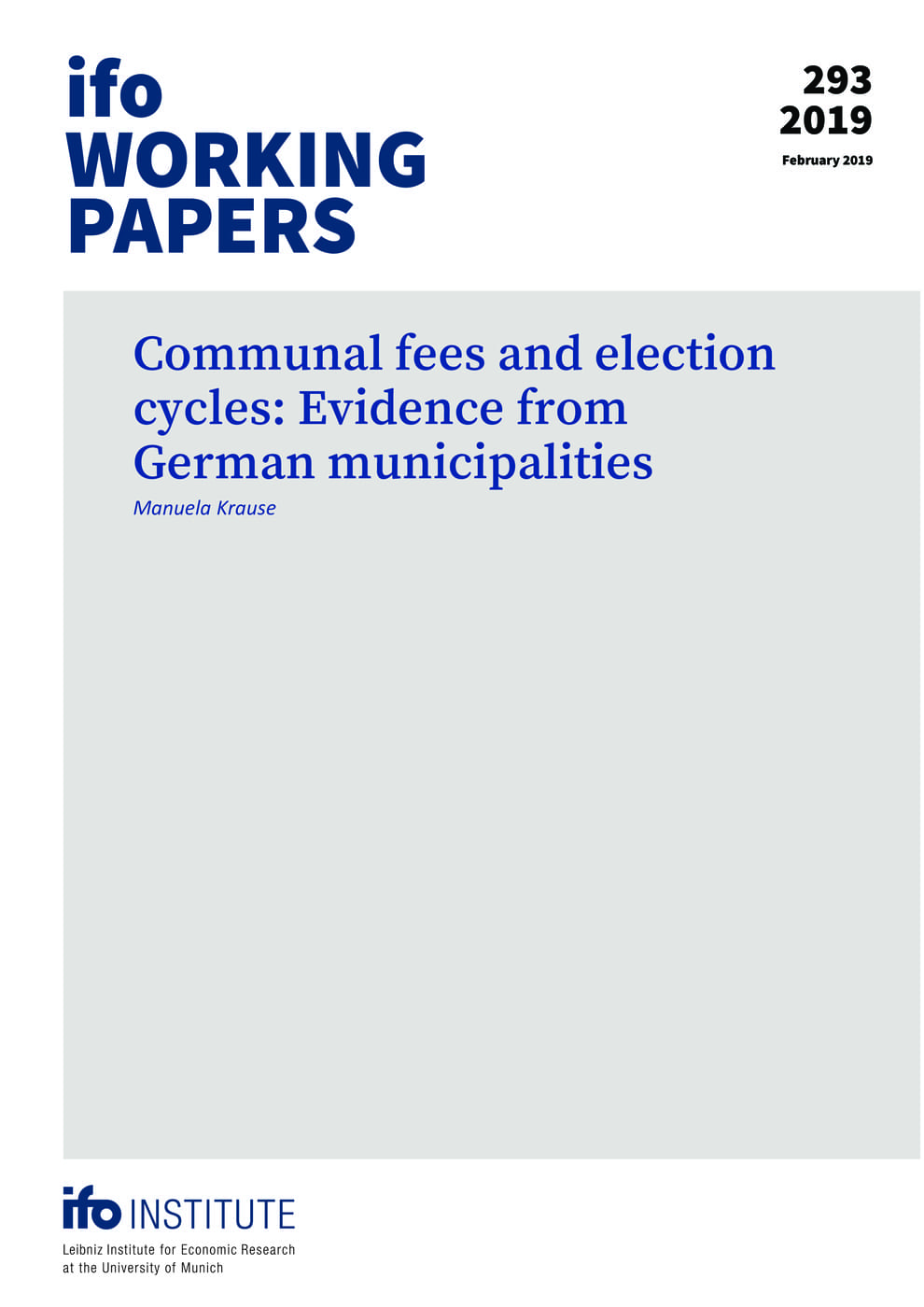Communal fees and election cycles: Evidence from German municipalities
ifo Institute, Munich, 2019
ifo Working Paper No. 293

The political business cycle theories describe that election-motivated politicians manipulate economic policy-making. Election cycles occur in many fiscal variables, for example tax rates. I examine whether electoral motives influence communal fees in Germany. Fees have to be paid for the use of many public services, for example waste management or sewerage provisions. Fees should be equivalent to the costs of a public service and thus correspond to the benefit principle in public finance. The German municipalities, however, have a leeway to determine fees. I use revenue data for around 7,000 West German municipalities from seven states over the period 1992–2006. The results show that municipalities increase communal fees in election years to a smaller extent than in the middle of the legislative period, while they increase fees more directly after elections. Fees increase in election years by 0.94 euro per capita less and directly after elections by 1.74 euro per capita more than in the middle of the legislative period. The results thus corroborate the predictions of the political business cycle theories.